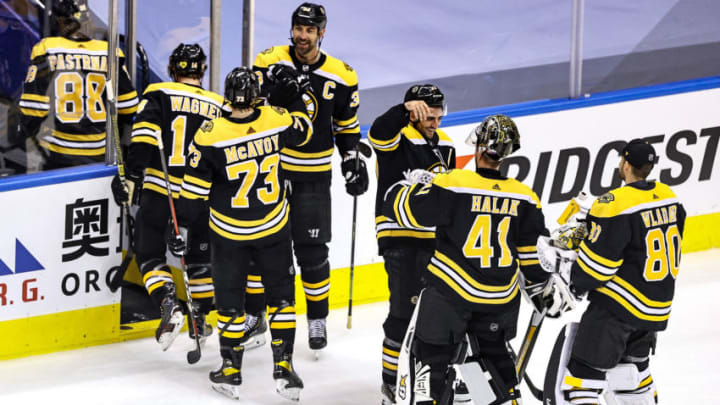
Charlie McAvoy
Naming just one player is always a bold call, especially when we’re looking at the deciding factors across a whole series, but it’s impossible to overlook the value that Charlie McAvoy brought to the Boston Bruins.
Since the start of the Stanley Cup Playoffs tournament, Charlie McAvoy seems to have taken another step forward in his game and is looking close to elite, if not elite.
Whereas it used to be a relatively even and balanced partnership between Zdeno Chara and McAvoy, the younger of that pairing is by far the more able now. In fact, Chara is unfortunately looking less and less like even a third-pairing NHL defenseman these days.
Across this series, Charlie McAvoy was the only member of the Boston Bruins to top more than 100 minutes of even-strength ice time with a total of 112:25. To put that in context, next on that list is Matt Grzelyck with a meagre (by comparison) 89:43.
Simply put, McAvoy is playing the minutes that used to be reserved for Chara. Not only that, but he’s doing it really well. At even strength, he had a Corsi For of 52.38%, Fenwick For of 52.66% and Shots For sitting at 57.02%.
All of these three analytics represent a defenseman that did a great job of ensuring the Canes didn’t spend too much time on the puck. More importantly, they were limited to not getting too many chances on the Boston Bruins net.
It feels like he’s blossomed overnight, from a very good young defenseman to the leader of the Boston Bruins defensive group, playing a style perfectly suited to the demands of the modern NHL.
Of course, we also have a bias for a player that lays hits like the one that put the Canes’ captain, Jordan Staal on his rear.
All in all, the Boston Bruins deserved their series win. These three key factors were but a few that ultimately resulted in victory over the Canes. Now to see who we draw next?
Statistics courtesy of Natural Stat Trick.
